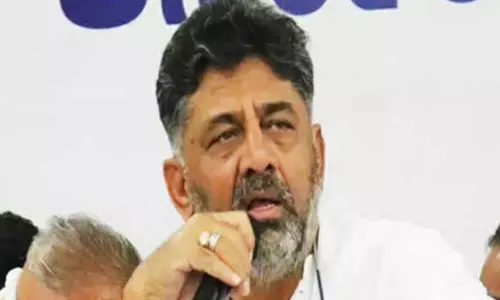Take up satellite portfolio for high returns

Take up satellite portfolio for high returns
I’ve earlier asked to show ingenuity while opting for a home and have a vision that encompasses more than a decade so that the changes to the city or locality wouldn’t overpower the decision at the first place
I've earlier asked to show ingenuity while opting for a home and have a vision that encompasses more than a decade so that the changes to the city or locality wouldn't overpower the decision at the first place. Also, the modes of transport and the workplace considerations are to be taken with such a view. Thanks to the pandemic, the last part of the story, workplace and transport, unraveled rapid and radical changes, most of which were unplanned for. Also, I've utilised this space to encourage imagination in creating portfolios that were non-traditional in approach.
Last week's article on cryptos to be part of the portfolios is one such attempt. Though I'm a proponent of diversification and asset allocation in a portfolio, too much of diversification would defeat the purpose. While most look at this strategy from the return generation capabilities, I would like to highlight the risk mitigation angle. So, an exposure in a particular asset is not just for riding a rally or a possible bull run but a conscious attempt at reducing the risk of the portfolio from the non-correlation nature. This brings us to the last few months experience of how the equity markets have been doing and the associated investments like equity mutual funds (MF). Here, too, I'm an aggressive advocate of diversification and thus portfolio creation. The conventional way to approach portfolio-building in MF has been by taking exposure at various parts of the market i.e., large, mid and small-cap and then add up with a hybrid MF. The allocation would be dependent upon the investor's needs and timelines along with the risk appetite. This has done well for the investors and I'm not discarding it, yet. The best way to keep abreast of change is to remain flexible to change while sticking to a plan. .
No, I'm not hinting at investing in the current best thing available and so switching between funds in pursuit of the best performing ones. That could turn into a fatal mistake for the investors' returns. History is replete with such instances when investors rushed in droves to ride the best performing fund, resulting into a disaster. It's nothing to do with the fund manager's ability or lack of it but trying to time the performance, investors could end up wrong-footed. This is because investors gravitate towards a fund post its performance or after confirming the fund's past performance, which could at times turn adverse. This also sets a wrong precedence for future expectations which could also impact the investor experience irrespective of the actual gains.
So, adding thematic funds to the conventional diversification allows one to take advantage of the market cycles while generating better returns. This could be part of a satellite portfolio where the earlier strategy could be defined as the core. The markets as well as businesses experience various cycles allowing a set of stocks or sectors to do well than others. This outperformance can't be long lasting and timing it is difficult. But the satellite portfolio could hold a smaller allocation to these funds, which needs an active management to keep track of them. From the macroeconomic indicators like inflation, GDP etc., we could identify various cycles of slump to recovery to growth to recession. For instance, domestic economy is in a slowdown (slump) since the last two years and the government as well as the central bank were trying to the pep up growth. At these times, the monetary policy would be accommodative with soft interest rates and possible reductions with time.
The current pandemic only aggravated the situation leading to drop in the interest rates reflecting almost two-decadal lows. The government also announced multiple incentives and policy measures that boost the economy activity. That's accompanied by accommodative to neutral monetary policy like that of now where the RBI maintained the lower interest rates despite inching transient inflation. These are the signs of recovery and further expansion would bring in growth phase. As the green shoots emerge better and capacity utilizations improve, the corporate profitability peaks around this time.
The resulting monetary policy would be contractionary in nature and general risk aversion is limited among the market participants. The cycle repeats itself as the conditions follow with moderating tax revenues and falling outputs leading to a recession. The accompanied monetary policy would be a departure from tightening to neutral. Each of these cycles have winners and losers among the various sectors and needs an active look out to identify. The new fund offering, Business Cycle Fund from ICICI Prudential MF, addresses this opportunity where the investment philosophy is to identify and invest in opportunities across sectors/themes/market caps based on the prevailing cycles with a pure top-down approach on various macro indicators. The evaluation of the strategy is done through periodic/event-based assessment of the macroeconomic environment. An exposure into this fund as part of the satellite portfolio benefits investors and allows for a passive investment management.
(The author is a co-founder of "Wealocity", a wealth management firm and could be reached at [email protected])









